Libya: Protesters torch mayor’s home in Derna as grief turns to anger over catastrophic flood
Journalists handed orders to leave devastated city of Derna after hundreds join protest against flood response
The mayor’s home in the destroyed Libyan city of Derna has been torched by angry protesters, as tensions reached boiling point over last week’s catastrophic flood.
Grief turned to anger as hundreds of mourning civilians gathered outside Derna’s iconic al-Sahaba Mosque in protest at the authorities’ response to the unprecedented rains that ripped through Libya’s Mediterranean coastline 10 days ago, destroying two dams above Derna and killing thousands.
Protesters accused the authorities of failing to maintain the dams that protected the city, and failing to evacuate residents before Storm Daniel, describing as “disastrous” a decision to enforce curfews on areas of the city that ended up being swept out to sea.
Later on Monday evening, protesters set fire to the house of Derna’s mayor, Abdulmenam al-Ghaithi, after he was suspended from his position alongside members of the Derna city council over the catastrophe.
Correspondents for local Libyan channels told The Independent that journalists had been handed orders to leave the city on Tuesday, while others, including foreign reporters, said they were having difficulty securing access. Communications with the city also appear to have been shut down.
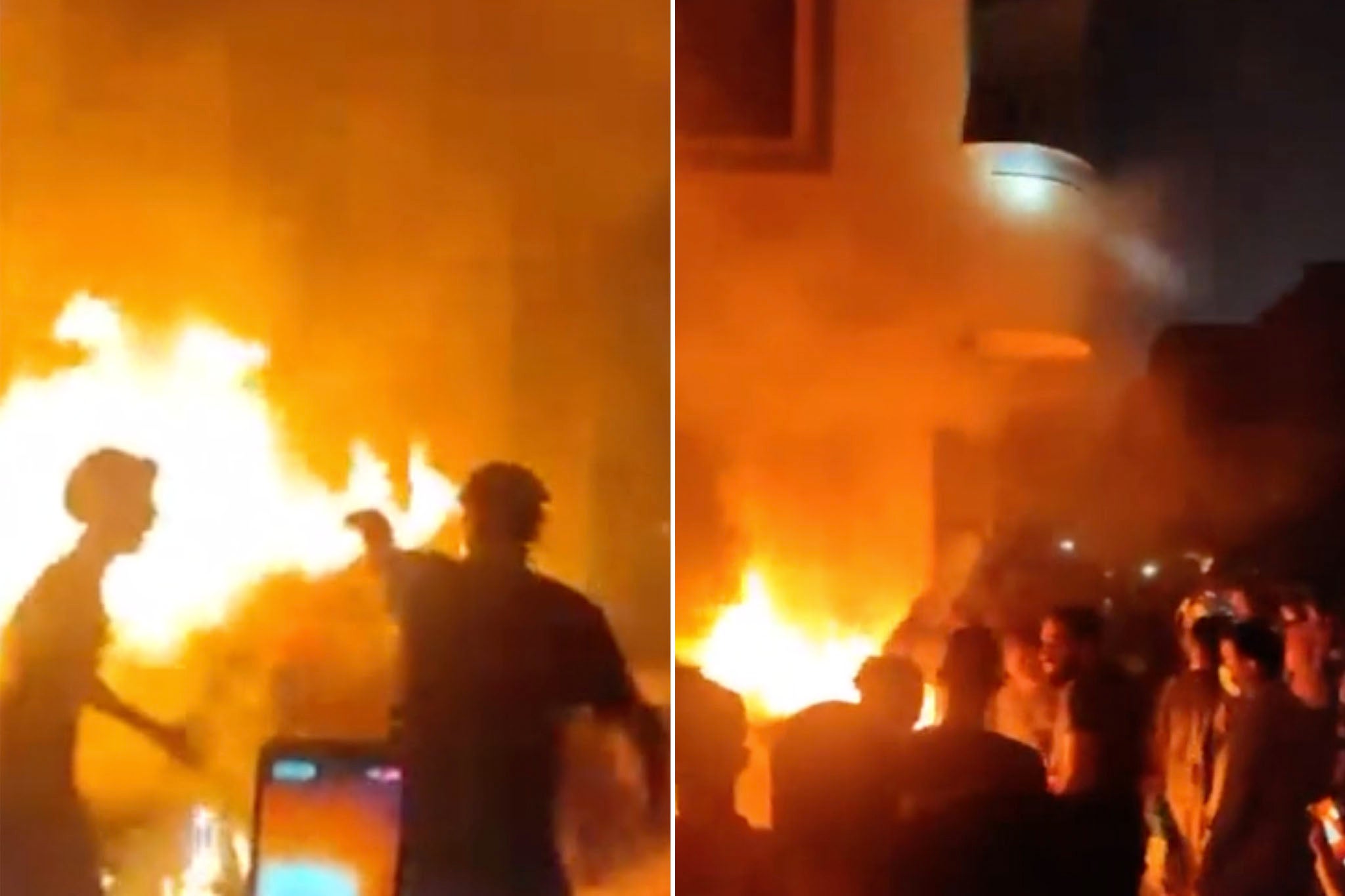
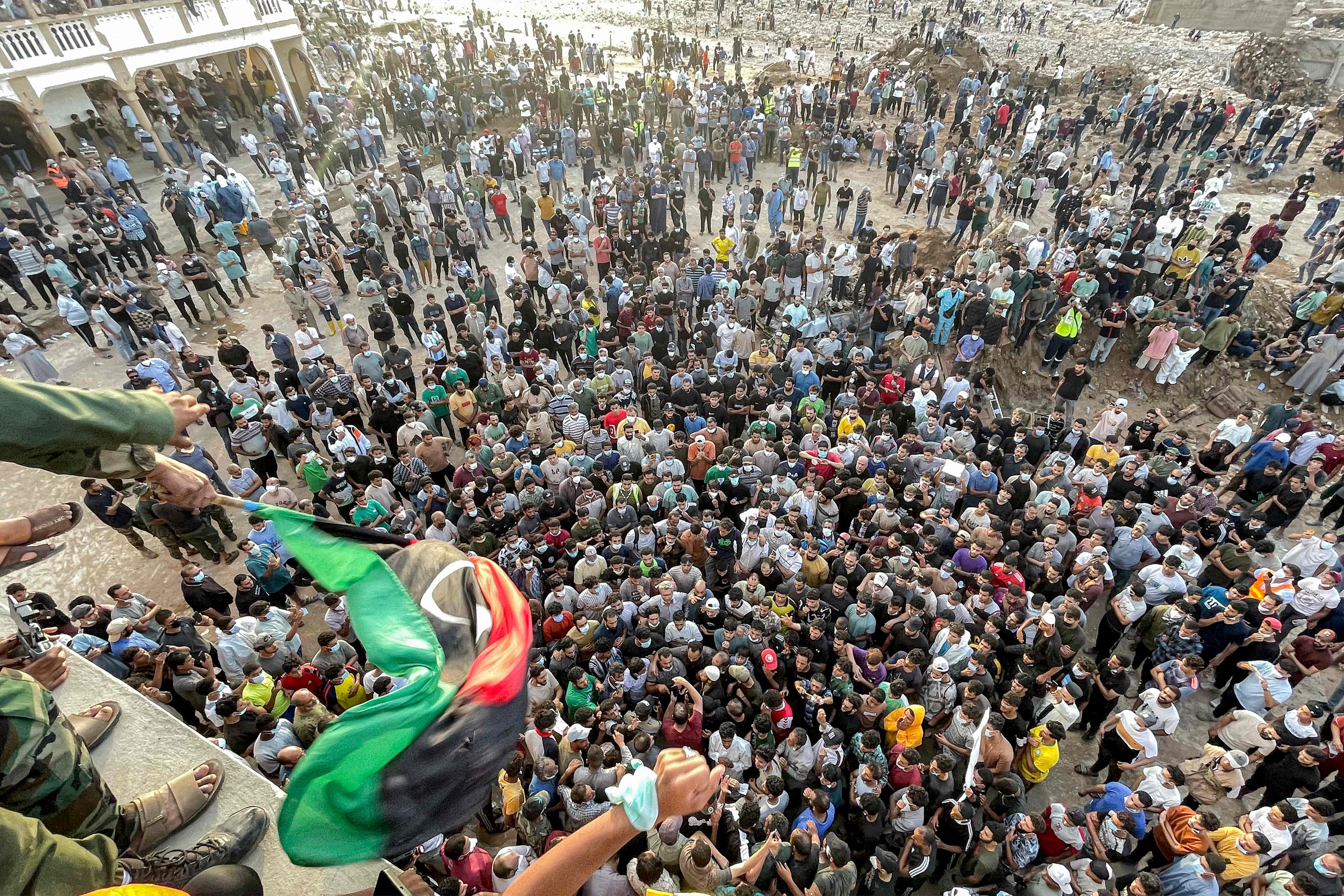
Hichem Abu Chkiouat, minister of civil aviation in the administration that runs eastern Libya, insisted that the decision to evacuate journalists was unrelated to the protests and was designed to help rescue teams to carry out their work more easily.
“The large number of journalists has become an impediment to the work of rescue teams,” he told reporters.
The government administering the east of the country is facing increasing pressure as furious residents of the city believe the disaster – which the United Nations has said killed more than 11,000 people – could have been prevented.
Officials acknowledge that a contract to repair the dams after 2007 was never completed, blaming insecurity in the area. Libya has been torn apart by warring fiefdoms of militias for more than a decade since Muammar Gaddafi was toppled and killed in 2011.
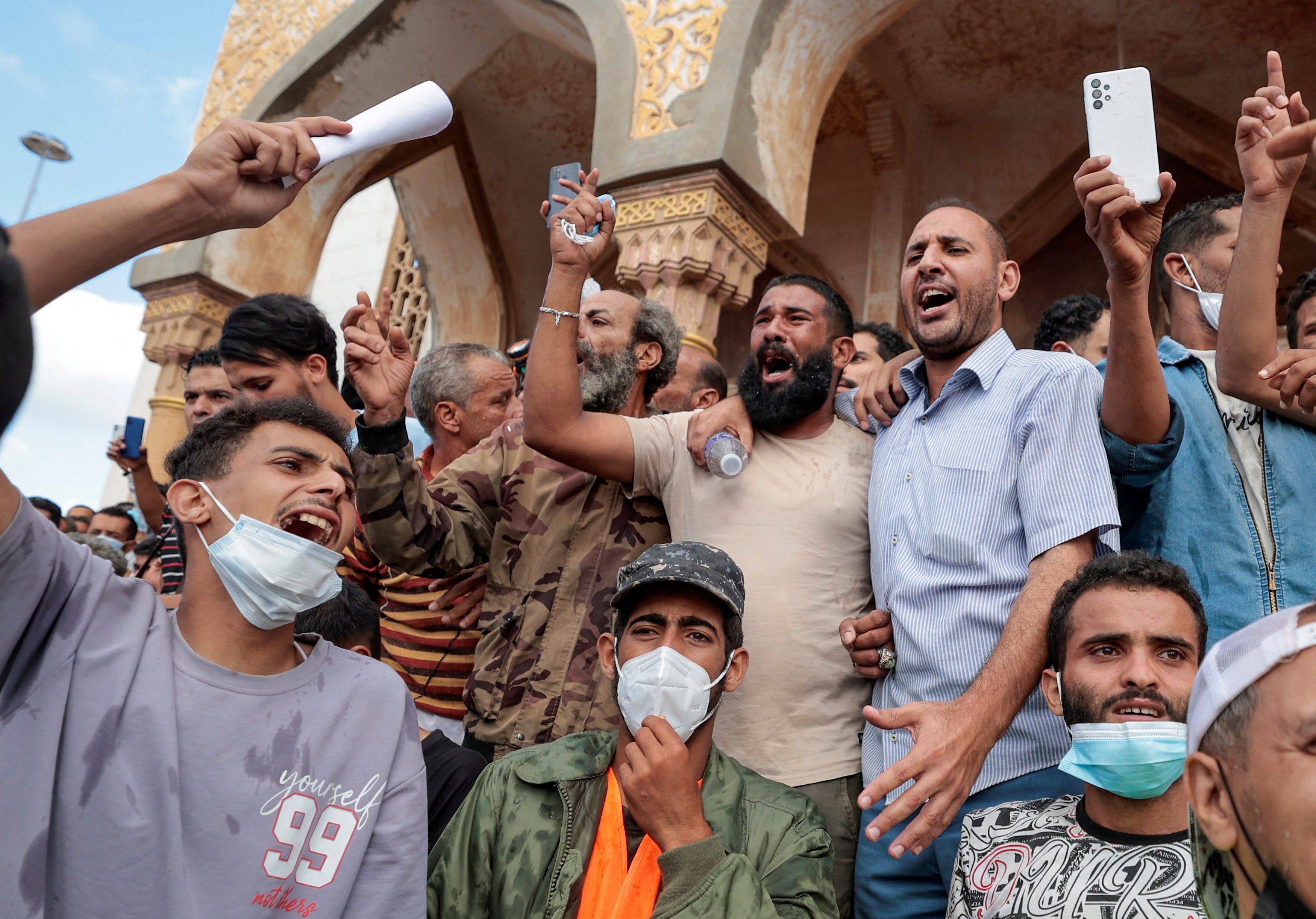
Over the weekend, Libya’s general prosecutor, al-Sediq al-Sour, opened an investigation into the collapse of the two dams, which were built in the 1970s.
The probe will also look into the allocation of $2m (£1.6m) in maintenance funding in 2012 and 2013 despite the repairs not having been completed. But it is unclear how this investigation will proceed, as the country is split between two rival administrations, who are backed by different armed factions and international actors.
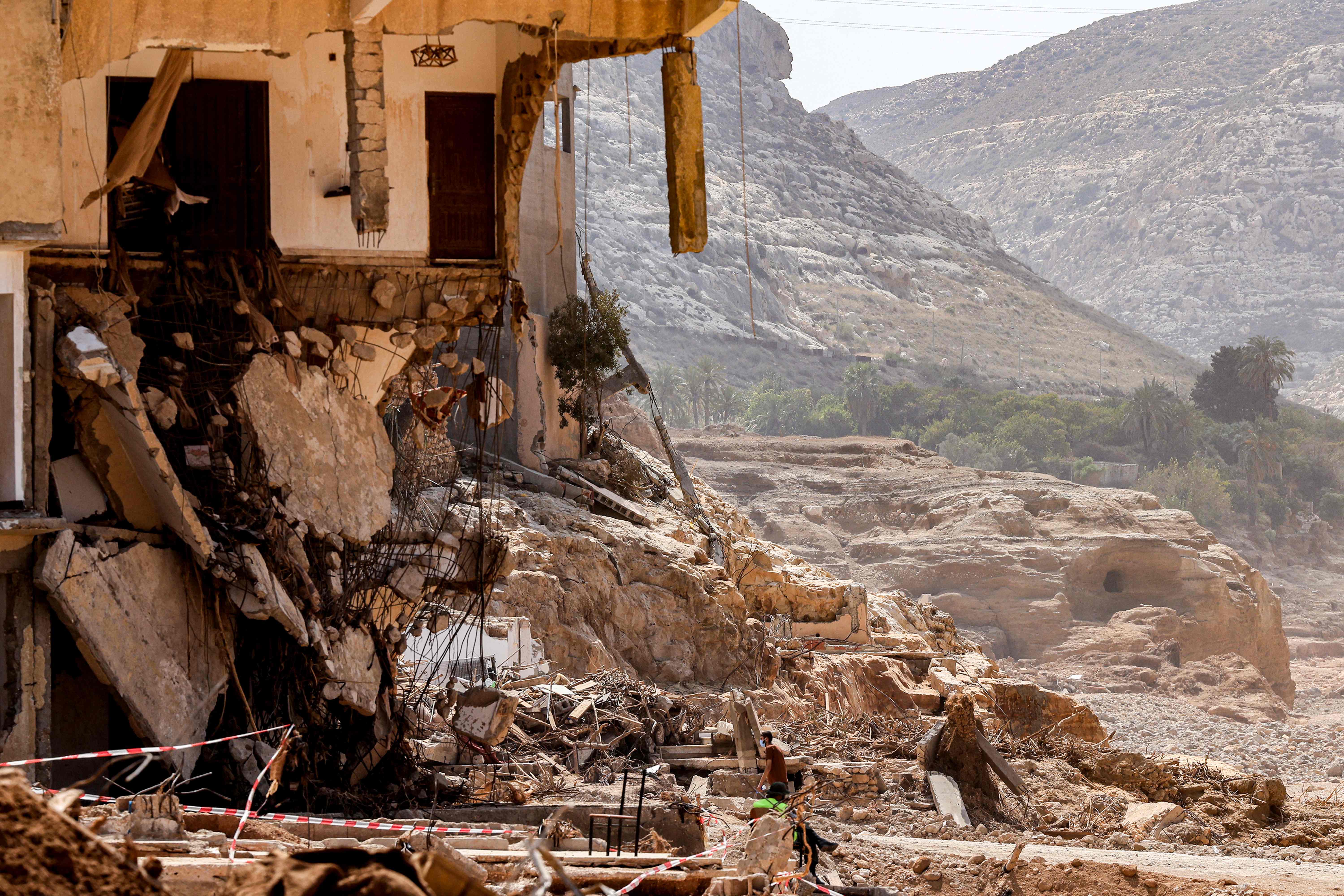
Over the years, Derna has been in the hands of groups including the Islamic State and al-Qaeda. Since 2019 it has been controlled by the Libyan National Army, which holds sway in the east.
Aid workers who themselves have lost family members in the flooding told The Independent that tensions are mounting in the Mediterranean town, a quarter of which was washed out to sea when the dams collapsed in the unprecedented storm.
One of the biggest concerns is now the spread of deadly diseases, as thousands of dead bodies are still trapped under the sodden rubble, “poisoning” the area.
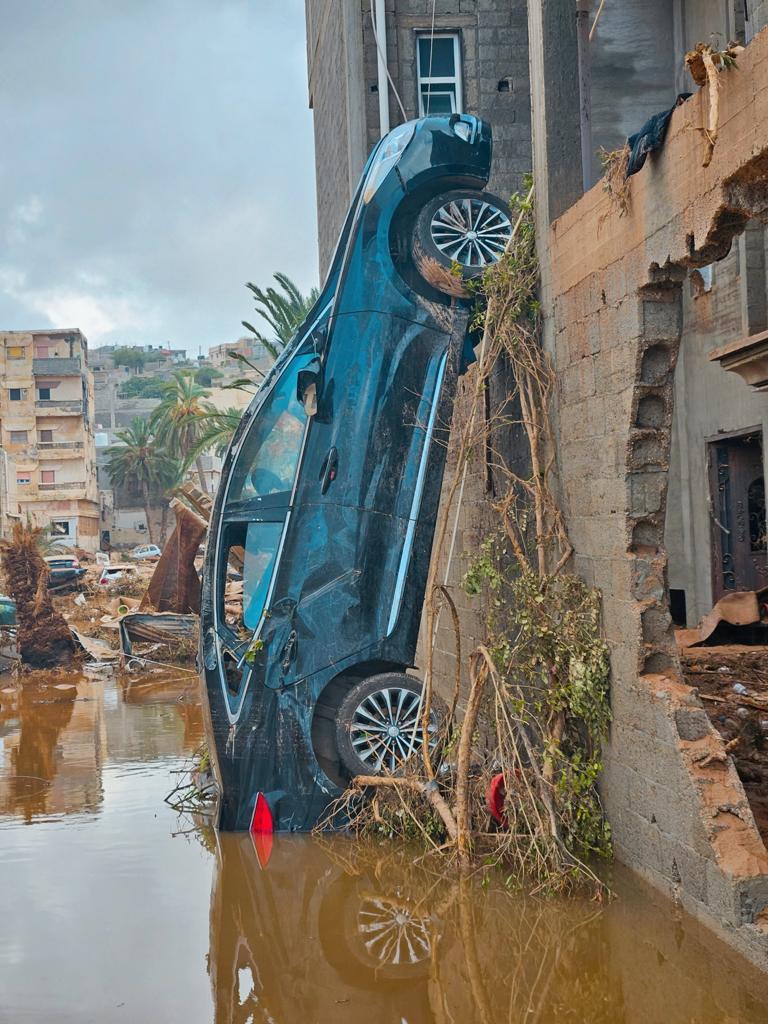
“At least 45 districts of the city have been destroyed, making delivery of aid incredibly difficult,” said Norhan al-Tshani, a field officer for Danish humanitarian charity Dan Church Aid. Ms al-Tshani alone lost 45 family members – 10 of whom were close relatives – and 20 neighbours in the tragedy.
“The smell is terrible. The biggest problem is the people who are trapped under the rubble – it has been 10 days, and it is awful. There is a high risk of disease spreading. Some children are already sick,” she said.
Even before the storm, she added, Derna lacked reliable access to clean drinking water, a result of the conflict that has ravaged the area for years.
“With homes, hospitals and schools destroyed, people are also thinking about the future. It’s a catastrophe,” she said.
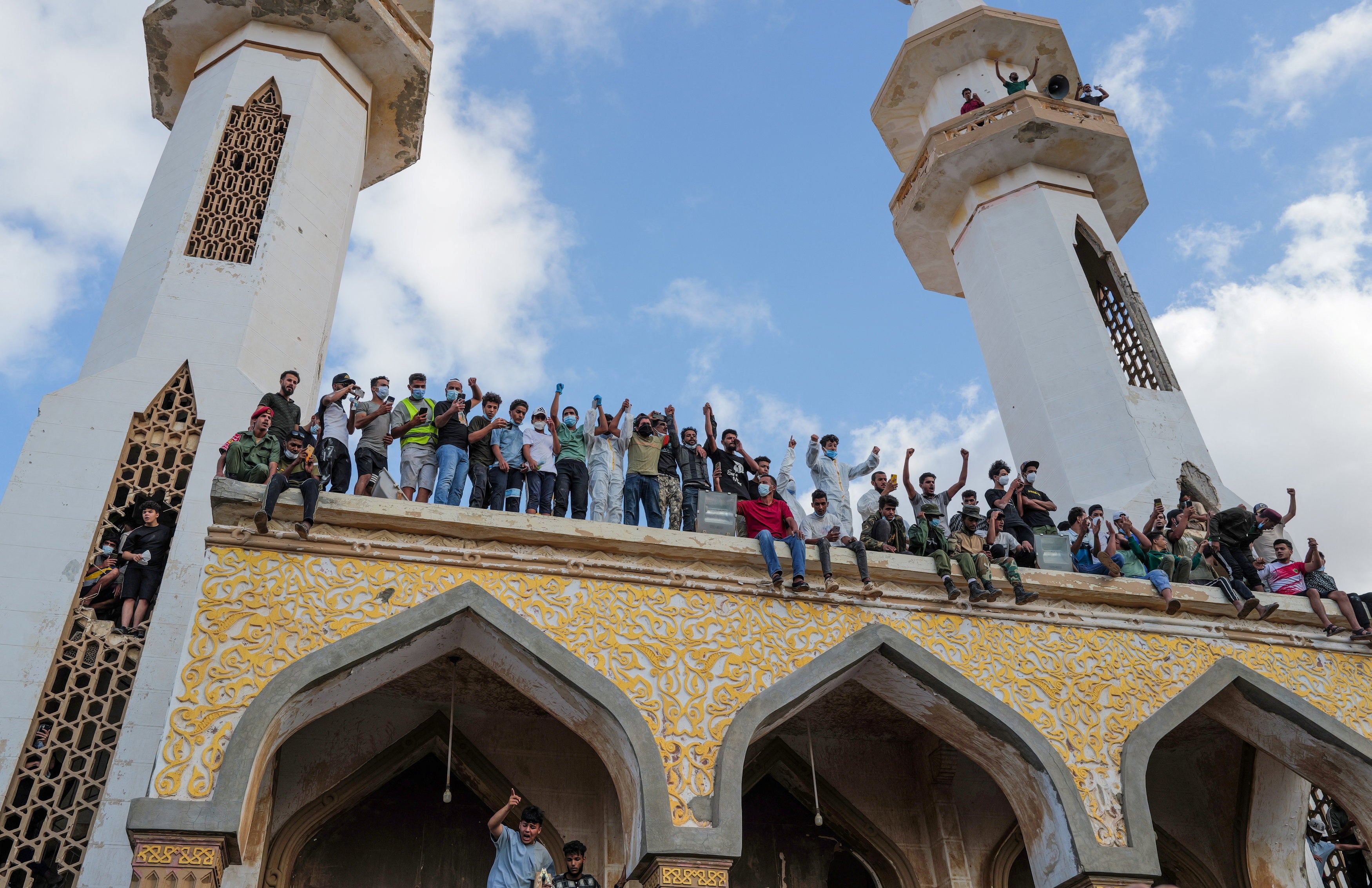
Ms Al-Tshani’s own brother, Faris, aged 30, was killed in the flooding and was live on Facebook shortly before died. He filmed himself on his mobile phone reciting Muslim prayers to the camera before the live feed was cut. Later, his body was found.
The wife and three children of her other brother, who were visiting relatives in Derna when the storm struck, were also killed in the disaster. The youngest child was just four years old.
Every family in Derna has lost at least 10 people
“Every family in Derna has lost at least 10 people. We have to work fast to do as much as we can,” she told The Independent with desperation in her voice.
Many people were in shock because the disaster was so unexpected.
“The authorities asked people to move away from the beaches before the storm hit. A lot of people evacuated from the sea area, further into the city and straight into the path of the waters unleashed by the dams,” Ms al-Tshani continued. “People were asleep when it hit. It was very confusing. You had calls from people saying they are safe, and then afterwards we learnt their entire building had been washed out to sea.”
The full scale of the death toll has yet to emerge, as thousands of people are still missing and officials have given widely varying death tolls. The World Health Organisation has confirmed 3,922 deaths, but the UN’s humanitarian aid agency said at least 11,300 people have died while another 10,100 are missing.
An estimated 170 people have been killed in other parts of the country. At last 40,000 people have been displaced.
Join our commenting forum
Join thought-provoking conversations, follow other Independent readers and see their replies
Comments



Bookmark popover
Removed from bookmarks